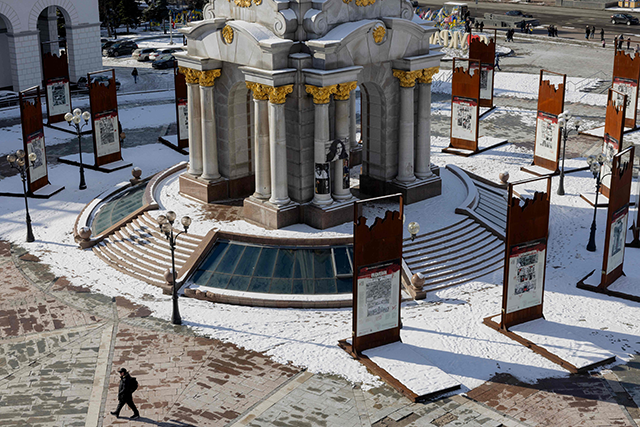KYIV — Ukraine's Volodymyr Zelensky said on Sunday 100,000 people were without heating in the southern city of Mykolaiv in cold temperatures after a Russian drone strike on "critical infrastructure".
Ukrainian officials had earlier said that Russian drones had hit a local thermal power plant.
Zelensky said the attack was proof Russia did not want peace, in a statement that came after he warned Western leaders not to trust Moscow and as Europe braces for a summit between Vladimir Putin and Donald Trump.
"Today, more than a 100,000 people in Mykolaiv were left without heating as a result of a Russian Shahed attack on the city's critical infrastructure," Zelensky said on social media.
"This has nothing to do with the fighting and the situation at the frontline," he said, adding: "This is not what those who really want to restore peace and prepare for negotiations do."
Zelensky said repair teams are working to restore heating in Mykolaiv, which lies close to the Black Sea.
The Ukrainian leader called for a "strong" response from Western allies and said: "We need to force Russia to peace."
Ukraine's prime minister Denys Shmygal earlier said that Russian drones hit the power plant in Mykolaiv at night.
"This was done deliberately to leave people without heat in sub-zero temperatures and create a humanitarian catastrophe," he said.
Russia has targeted Ukraine's energy infrastructure throughout its three-year invasion.
